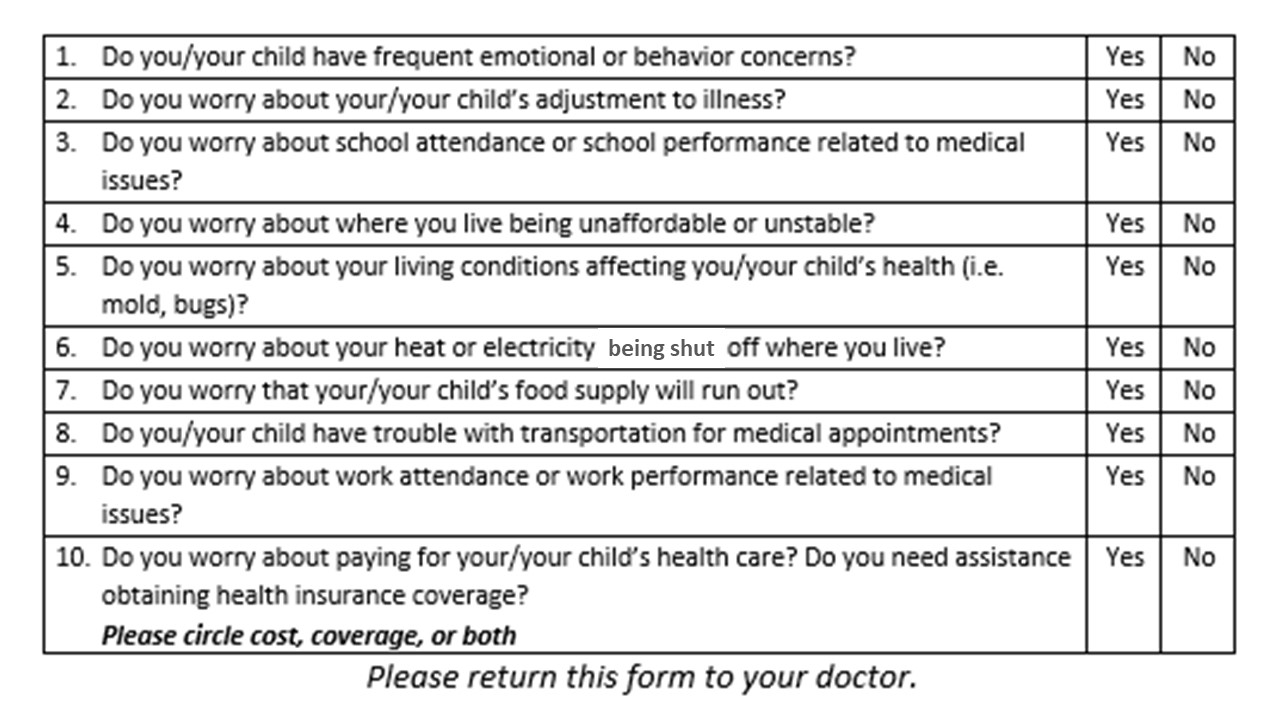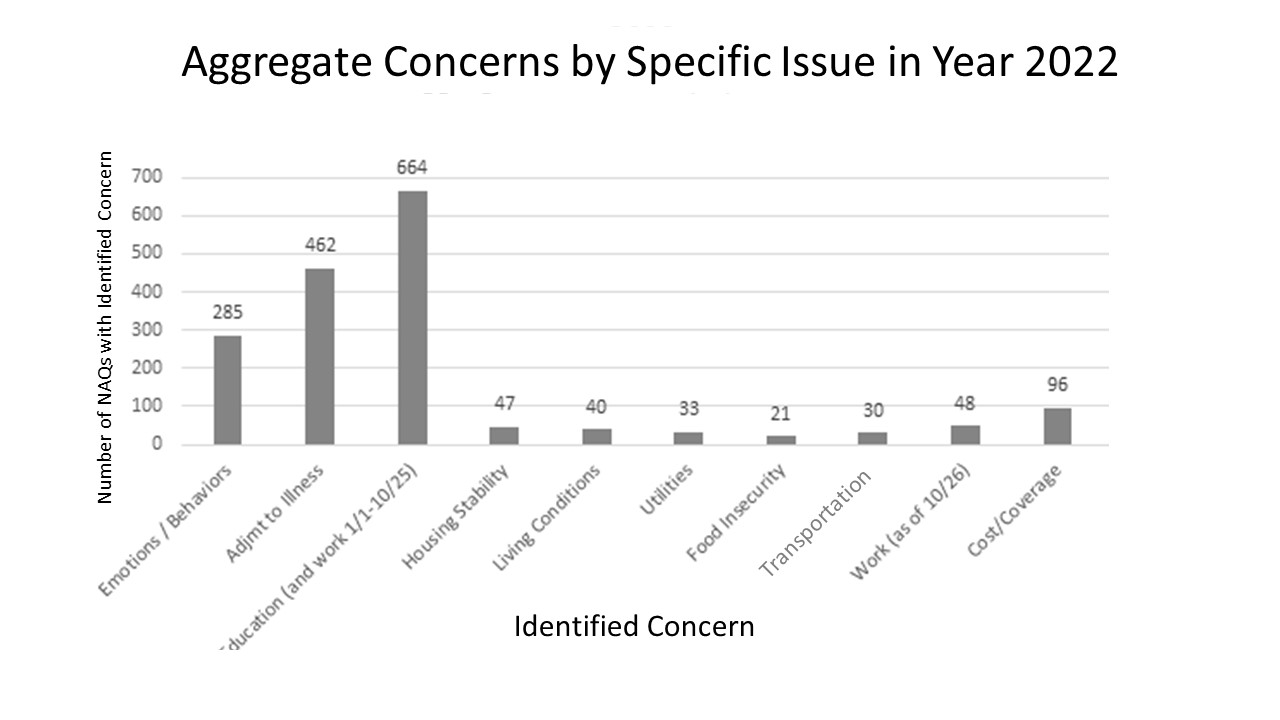Session Information
Date: Monday, November 13, 2023
Title: (1200–1220) Patient Outcomes, Preferences, & Attitudes Poster II
Session Type: Poster Session B
Session Time: 9:00AM-11:00AM
Background/Purpose: Social determinants of health (SDoH) significantly impact health outcomes. Practice guidelines from a national pediatric organization and federal agencies recommend routine assessment of SDoH. Screening is increasingly prevalent in the pediatric primary care setting. However, little evidence exists to suggest that pediatric specialty clinics can successfully screen for and address SDoH needs routinely. This study aimed to 1) test the feasibility of universal SDoH screening and 2) understand the burden of SDoH-related needs in a large academic pediatric rheumatology subspecialty clinic.
Methods: As part of a quality improvement project to understand the burden of and address unmet social needs at a large pediatric academic medical center, the study team developed a SDoH needs assessment questionnaire (NAQ) via the nominal group technique. The study team included a full-time social worker and pediatric rheumatologists, including a SDoH/health equity physician researcher. The NAQ and the process outlining the distribution and return of the NAQ to the social worker were piloted. Iterative changes to the NAQ and to the process map were made to optimize the return rate. The brightly colored paper-based NAQ, translated into English and Spanish, was distributed by front desk staff to every patient/family at each in-person visit conducted in the main campus of a pediatric rheumatology outpatient clinic. Completed surveys were returned by the rheumatology providers to a single designated receptacle and then collected by the social worker within 1-2 business days. The responses from all NAQs were analyzed to understand the burden of unmet SDoH-related needs. The social worker addressed any non-urgent unmet needs identified on returned NAQs by way of the electronic health record patient portal or phone call. Acute needs identified in the clinic prompted a direct page or message to the social worker for urgent follow-up.
Results: The NAQ consists of 10 questions assessing the presence or absence of family/patient concernsabout SDoH-related needs: emotional/behavioral, adjustment to illness, school attendance or performance, housing insecurity, living conditions, utilities (heat and electric) insecurity, food insecurity, transportation access, work attendance or performance, and health care insurance/health care costs (Figure 1). Nearly 2/3 of rheumatology outpatient clinic visits between January 1-December 31, 2022, resulted in a completed NAQ (2355/3738). At least 1 unmet SDoH-related need was identified on 903 (38%) of the completed NAQs. School attendance/performance was the most frequently identified concern (Figure 2). The social worker responded to all 903 (100%) NAQs that identified unmet needs.
Conclusion: There is a significant burden of SDoH-related needs among patients presenting to a large academic outpatient pediatric rheumatology specialty clinic. Universal screening of social and behavioral determinants of health with subsequent follow-up to address unmet needs is feasible with a dedicated, full-time social worker on staff.Given the high burden of SDoH-related needs, further studies are needed to assess the effectiveness and impact of social work interventions over time.
To cite this abstract in AMA style:
Chandler M, Taggart M, Alfieri M, Halyabar O, Chang J, Son M, Hazen M. Universal Social Determinants of Health Screening in a Pediatric Rheumatology Specialty Clinic: A Feasibility Study [abstract]. Arthritis Rheumatol. 2023; 75 (suppl 9). https://acrabstracts.org/abstract/universal-social-determinants-of-health-screening-in-a-pediatric-rheumatology-specialty-clinic-a-feasibility-study/. Accessed .« Back to ACR Convergence 2023
ACR Meeting Abstracts - https://acrabstracts.org/abstract/universal-social-determinants-of-health-screening-in-a-pediatric-rheumatology-specialty-clinic-a-feasibility-study/


